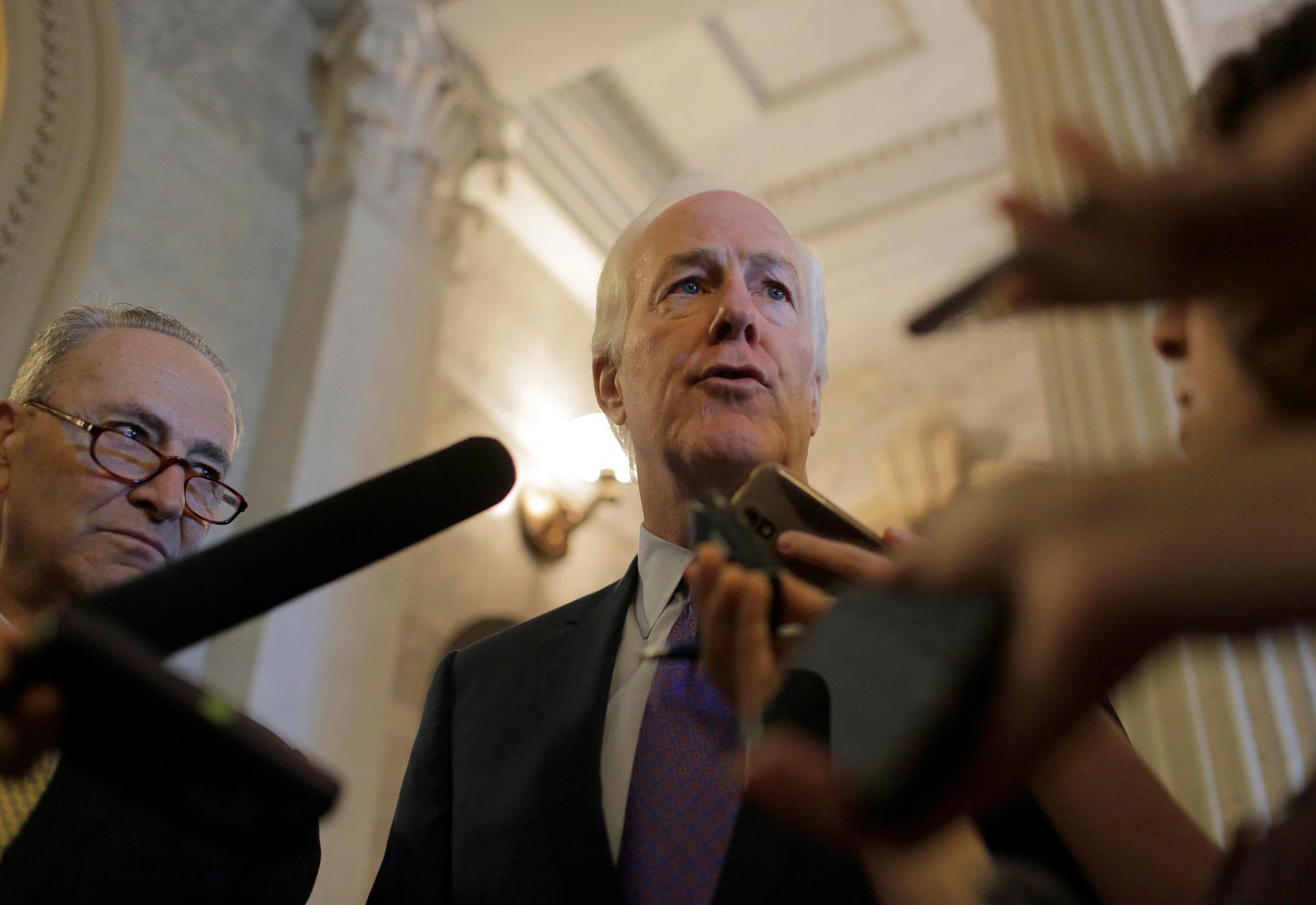9/11 families can now sue Saudi Arabia. That could ‘open the floodgates’ for suits against the US.
Senators Chuck Schumer (D-NY) (L) watches as John Cornyn (R-TX) speaks after the Senate voted to override President Barack Obama's veto of a bill that would allow lawsuits against Saudi Arabia's government over the Sept. 11 attacks.
A US congressional vote to allow the relatives of 9/11 victims to sue the Saudi Arabian government over alleged connections to the attacks could "open the floodgates" to retaliatory cases against the US, according one legal expert.
The law, called the Justice Against Sponsors of Terrorism Act, amends the Foreign Sovereign Immunities Act of 1976, which grants foreign states immunity from suits in US courts, except when it comes to commercial activity. JASTA makes terrorism on US soil another exemption.
Philippe Sands, a law professor at University College London, says the consequences for international relations could be profound: "Some people will say, OK, if the US is opening the door to cases against Saudi Arabia, why can't we open to the door to the United States? Essentially it could be endless."
President Barack Obama had vetoed the legislation, arguing it would expose the US government to a range of legal challenges relating to US foreign policy. Congress overruled his veto by a vote of 348-77. The Senate vote was even more lopsided: 97-1.
US allies in the Middle East have signaled their concern about the move.
Bahrain warned Thursday that the vote would come back to hurt the US.
"The Justice Against Sponsors of Terrorism Act is an arrow launched by the US Congress at its own country," Bahraini Foreign Minister Sheikh Khaled bin Ahmed Al Khalifa said on Twitter.
Some families of 9/11 victims campaigned vigorously for the law, convinced the Saudi government played a role in orchestrating the attacks that killed almost 3,000 people. Fifteen of the 19 attackers were Saudis. Documents declassified in July show US intelligence suspected a connection between the Saudi government and the attackers, but couldn't prove a link. Saudi Arabia denies involvement.
According to Sands, there's good reason for nations to respect foreign state immunity in their domestic courts.
"It's a sort of self-serving convention, but it does have a rational basis," he says. "And I think that when the United States starts to get sued around the world, and is met with response: 'You've done this, why should you have immunity any more?' — it will be a difficult question to answer."
Every day, reporters and producers at The World are hard at work bringing you human-centered news from across the globe. But we can’t do it without you. We need your support to ensure we can continue this work for another year.
Make a gift today, and you’ll help us unlock a matching gift of $67,000!
